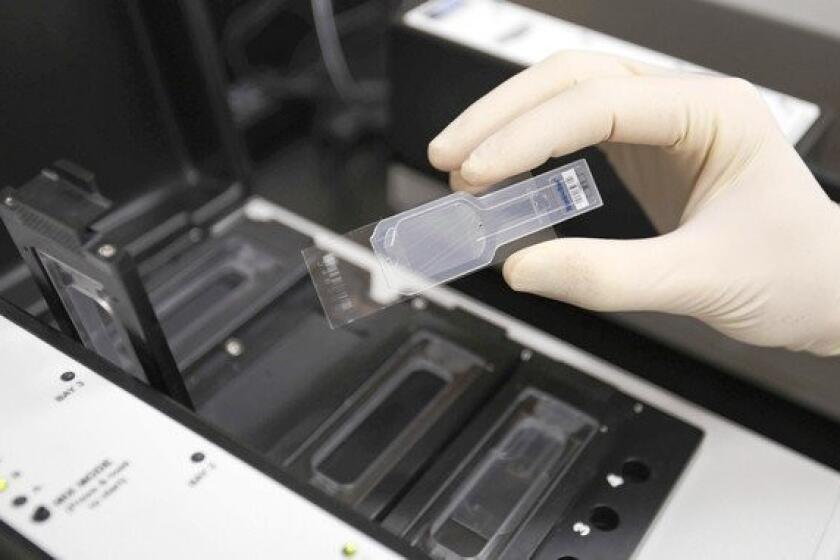Full coverage: BioWatch under scrutiny
Since 2003, BioWatch air samplers have been installed inconspicuously at street level and atop buildings in cities across the country — ready, in theory, to detect deadly biological attacks. But the federal system has not lived up to its billing.
- 1
The decision to cancel ‘Generation 3’ of the system for detecting biological attacks marks a policy reversal. The overall BioWatch program, which has cost more than $1 billion, is still under review.
- 2
WASHINGTON -- Leaders of a House committee probing BioWatch, the nation’s troubled system for detecting biological attacks, complained Thursday that administration officials had blocked them from seeing documents held by two senior federal scientists known to have been privately skeptical of the nationwide program.
- 3
A House panel wants Homeland Security to open its books on the troubled bioterrorism detection program.
- 4
Federal officials have not provided key records sought by a congressional panel, its leaders say.
- 5
An anti-terrorism expert doubts the reliability of a costly new version of BioWatch, sources say.
- 6
Scientists say the U.S. biological defense system relied on kits that were far less able to help detect lethal germs than officials thought.
- 7
Democrats and a senior Republican on a House panel endorse a GAO report that faults the government’s management of the system designed to detect biological attacks.
- 8
The GAO says the Department of Homeland Security has not established the need or effectiveness of a multibillion-dollar upgrade to the BioWatch system.
- 9
Plans have been delayed to buy technology for the nation’s system for detecting biological attacks, as the Department of Homeland Security faces questions about whether the system works.
- 10
BioWatch scientists knew the biological attack detection system was prone to false alarms, records show — contradicting Homeland Security officials’ assertions.
- 11
The Department of Homeland Security’s BioWatch air samplers, meant to detect a terrorist biological attack, have been plagued by false alarms and other failures.









